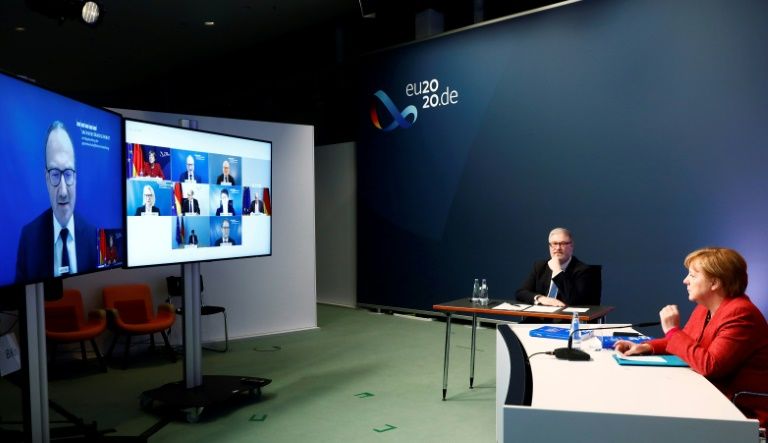German economists raise 2020 outlook despite virus surge
Frankfurt am Main (AFP) – A panel of economists who advise the German government said Wednesday Europe’s top economy will shrink less than feared in 2020 despite a resurgence in coronavirus cases, but warned of a “fragile” recovery ahead.
A “very strong” rebound in the summer months prompted the so-called “Wise Men” panel to raise its expectations for the German economy to a contraction of 5.1 percent, it said in a report.
The decline is less severe than the 6.5 percent fall in gross domestic product (GDP) the panel predicted in June, and better than the government’s own outlook of a 5.5 percent decline.
However, expectations for 2021 have been lowered to a 3.7 percent expansion, as opposed to the 4.9 percent previously forecast.
“Due to the sharp rise in the number of infections, the economic situation remains fragile,” said Lars Feld, chairman of the five “Wise Men” panel, which includes two women.
“How the pandemic can be contained and how the economy develops abroad will be decisive for further development,” he added.
Economic output plummeted in the spring when Germany shuttered businesses and factories, but rallied after measures were lifted in the summer and the government unlocked more than a trillion euros in rescue and stimulus money to cushion the blow.
The expansion of short-time work, or “Kurzarbeit” in German, has been credited with preventing a sharp rise in unemployment, which now hovers at 6.2 percent.
Overall, the fiscal support measures — including a temporary VAT cut — have boosted economic output by 0.7 to 1.3 percent this year, the panel estimated.
But a spike in infection rates has prompted Chancellor Angela Merkel’s government to impose a new round of restrictions for November.
While shops, factories and schools can stay open, gastronomy, leisure and cultural sectors have had to shut down.
– Cheap money –
As a result, “economic activity in consumer-related services is expected to remain subdued throughout the winter,” the economists said.
The panel welcomed efforts by the German government and the European Central Bank to support the pandemic-hit economy with unprecedented stimulus.
But it cautioned that the emergency measures should end as soon as there was a “sustainable improvement” in the economy.
The crisis has led Berlin to ditch its cherished no-new-debt rule, while the ECB is pumping an additional 1.3 trillion euros of cheap money into the eurozone as part of its pandemic bond-buying programme.
“The focus should be on consolidating public finances and normalising monetary policy,” the economists said, with fiscal and monetary medicine being withdrawn in time to boost competitiveness and halt the rising debt burden of the health crisis.
Disclaimer: Validity of the above story is for 7 Days from original date of publishing. Source: AFP.


